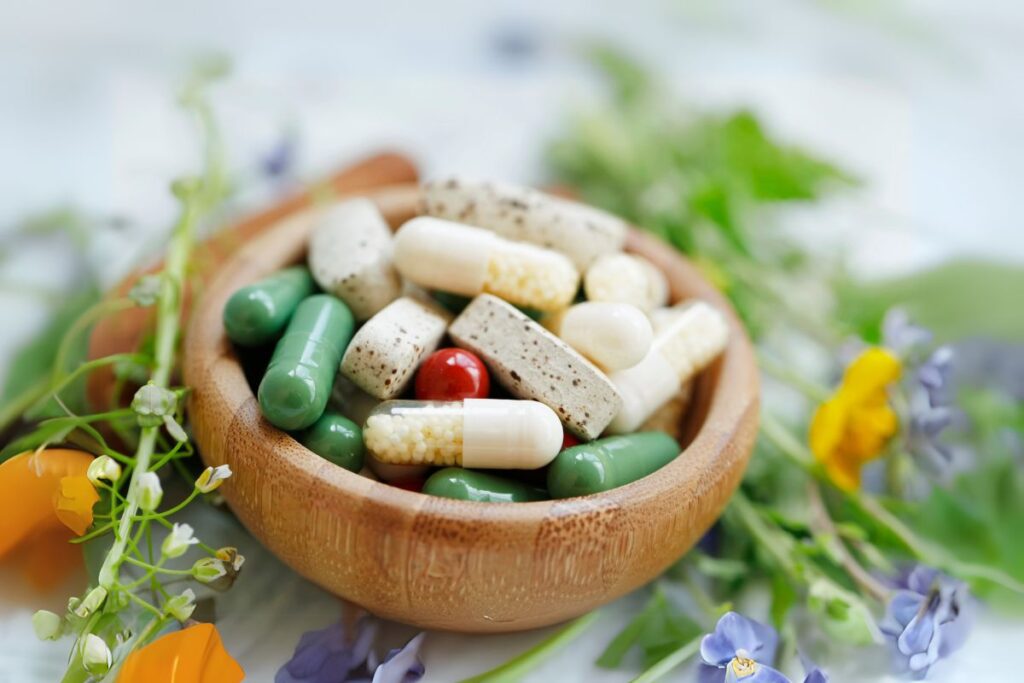Rising Popularity, Hidden Risks
The promise of natural healing has inspired many to seek out Ayurvedic and Traditional Chinese Medicine (TCM) for kidney health. However, research shows that specific herbal preparations may pose severe risks to kidney function, often due to contaminants and excessive dosages.
Case Study: Chronic Kidney Disease Linked to Ayurvedic Therapy:
A 54-year-old man tried alternative therapy for joint pain by incorporating a mixture of Guggul and Triphala into his daily routine consistently for months. As time progressed, he began experiencing tiredness and oedema, symptoms of kidney failure. Tests revealed increased creatinine and urea levels. A biopsy confirmed interstitial nephritis—a kidney disorder linked to herbal medicine-induced nephrotoxicity. The patient required dialysis and ongoing kidney support1.
Mechanisms of Nephrotoxicity in Herbal Medicines:
1. Heavy Metal and Toxin Exposure:
● A study published in Nephrology Dialysis Transplantation found that over 30% of Ayurvedic products contained unsafe levels of lead and mercury, which are known to damage renal cells. Lead, in particular, can lead to tubulointerstitial nephritis and chronic kidney disease (CKD)2.
2. Herbs with Nephrotoxic Potential:
● Aristolochic acid, found in some TCM remedies, has been strongly linked to kidney damage. Ingesting this compound can lead to rapid progression of CKD and even end-stage renal disease (ESRD). A clinical review in the American Journal of Kidney Diseases documents several cases where patients developed irreversible kidney failure due to aristolochic acid exposure 3.
3.Hyperuricemia and Renal Calcification:
● Specific Ayurvedic treatments can lead to hyperuricemia (elevated uric acid), increasing the risk of renal calcification and obstructive nephropathy. This was documented in a 2018 case series in BMC Nephrology, which found increased cases of kidney stones in patients using high doses of Guggul 4.
Research and Regulatory Stances on Herbal Nephrotoxicity:
●Contamination Prevalence: A systematic review in Environmental Research found that roughly 35% of TCM products and 29% of Ayurvedic products tested had nephrotoxic heavy metals like cadmium and arsenic.
● Government Warnings: The FDA and Health Canada have issued advisories on nephrotoxic risks associated with herbal medicines containing heavy metals or aristolochic acid.
Disclaimer:
This information is provided to raise awareness about the potential renal risks of specific herbal supplements. It does not discredit traditional medicines, which have their place in healing when used appropriately. Consult reliable practitioners before beginning any alternative treatment, especially if you have existing kidney concerns.
How HealthPil Can Help:
HealthPil connects you with specialists who can offer safe, personalised advice on alternative treatments. Consulting a nephrologist is essential for those experiencing kidney issues. HealthPil provides access to experts for second opinions and thorough kidney health evaluations.
Footnotes
- Singh, M., et al. “Herbal Medicine-Induced Nephrotoxicity: A Case Report.” Clinical Journal of Nephrology, 2019.
- Lin, C., et al. “Heavy Metal Nephrotoxicity in Ayurvedic Products.” Nephrology Dialysis Transplantation, 2017.
- Howard, M., et al. “Aristolochic Acid and Kidney Failure.” American Journal of Kidney Diseases, 2016.
- Parikh, P., et al. “Hyperuricemia and Nephrotoxicity in Herbal Medicines.” BMC Nephrology, 2018.

